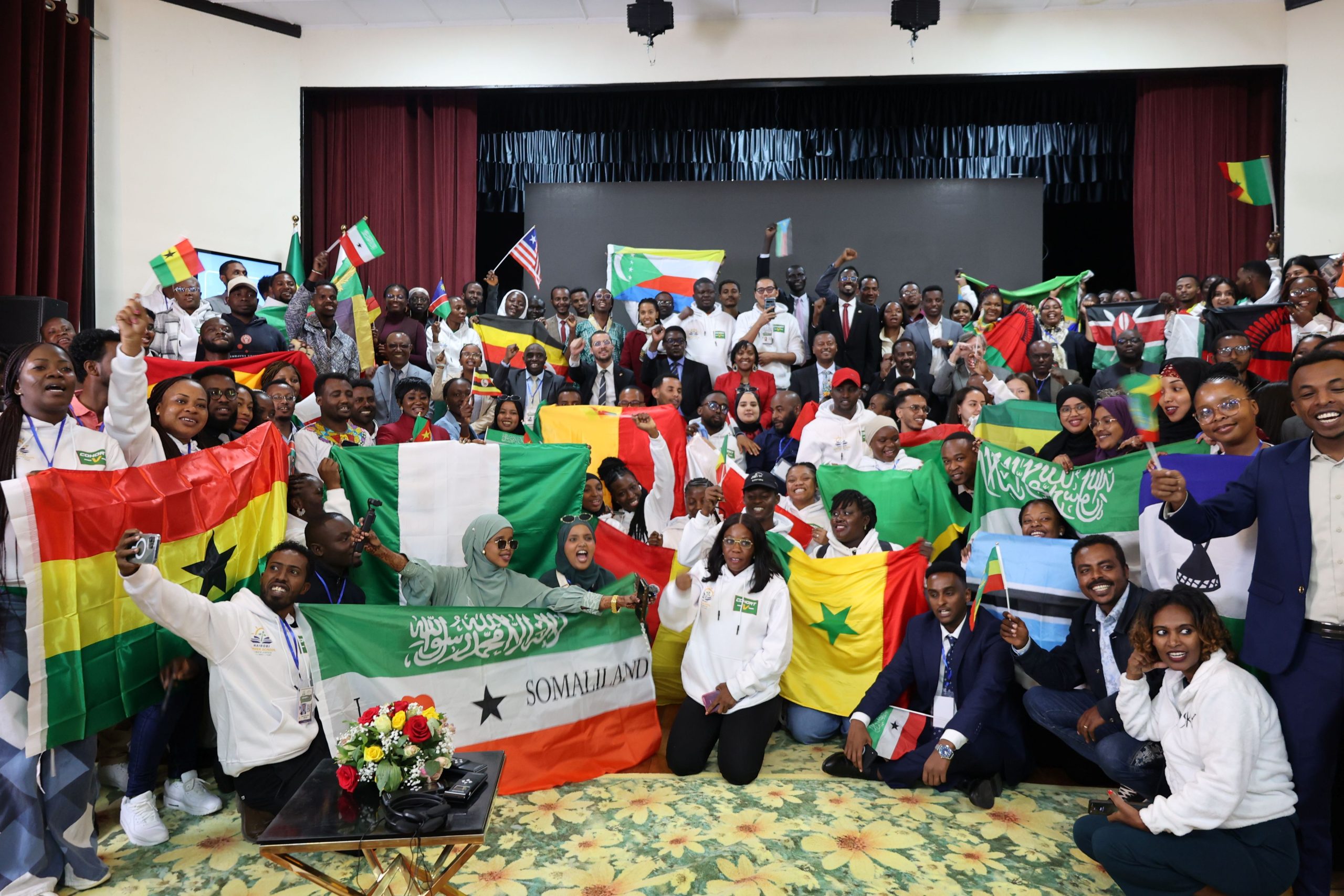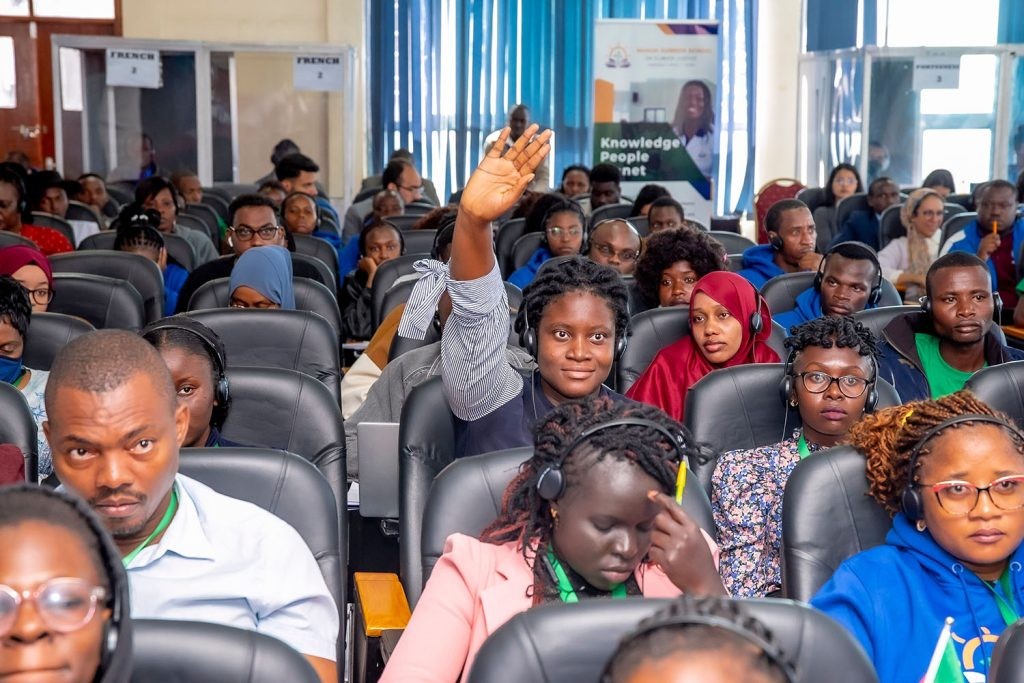Addis Ababa, Ethiopia — August 26, 2025
The University of Addis Ababa hosted the International Symposium on Climate Justice, an event that also marked the official launch of the 5th Cohort of the Nairobi Summer School on Climate Justice (NSSCJ).
The symposium brought together high-level government officials, representatives from the African Union (AU) and the United Nations Economic Commission for Africa (UNECA), development partners, and youth delegates from across Africa, Europe, the Americas, and Asia.
As a precursor to the upcoming Africa Climate Summit II (ACS II), the event provided a space to reflect on the critical role of young people in driving innovative, inclusive, and just solutions to the escalating climate crisis.
Held under the theme “Aspiring a Livable Future: Youth-Led Transformation in the Polycrisis Era,” the two-week program will run from August 24 to September 4, 2025, bringing together more than 200 participants. Through intensive training sessions, participants will deepen their knowledge of climate justice, climate finance, negotiation strategies, and grassroots-driven solutions — all aimed at strengthening their capacity to influence climate action and policy across the continent.
Dr. Augustine Njamnshi, a founding leader of the Nairobi Summer School, emphasized the need for continuous investment in youth empowerment.
“The more we train, the more we interact, the more we get things right. From the global north to the global south, young people have shown incredible commitment to changing the tides,” he said.
Dr. Mithika Mwenda, Executive Director of the Pan African Climate Justice Alliance (PACJA), highlighted the urgency of action in a world grappling with intersecting crises.
“The threat is clear: a climate system spiraling out of control, compounded by growing inequalities, wars, pandemics, and economic shocks that are eroding the very fabric of our societies,” he said.
Representing the Africa Group of Negotiators (AGN), Dr. Richard Mayungi, the AGN Chair, praised the Nairobi Summer School for its pivotal role in preparing young climate leaders.
“This kind of consistent, unwavering support across the continent goes beyond just building capacity — it strengthens Africa’s collective voice. Today, more than ever, we need negotiators who are not only well-trained but also armed with solid evidence from African scholars,” he remarked.
Calling for stronger youth inclusion, Mr. Sebastian Lukas, Deputy Head of Mission at the Danish Embassy in Ethiopia, urged governments to move beyond tokenism.
“It’s time to move beyond symbolic gestures. Governments must truly listen and ensure that young people are meaningfully represented in negotiations,” he stated.
In her keynote address, H.E. Dr. Fitsum Assefa stressed the importance of Africa taking a leading role in shaping climate action and finance.
“We will not sit back and wait for the world to respond; we shall act, and act now. Africa must claim its rightful place in global finance, in international architecture, and across all sectors. A livable future is possible if we act with purpose and courage,” she said.
Since its inception, the Nairobi Summer School on Climate Justice — a flagship initiative of PACJA, implemented with partners across the continent and beyond — has trained more than 2,000 young people. These alumni have gone on to influence climate policy, advocacy, and action at local, regional, and global levels. This fifth cohort is set to build on that legacy, amplifying Africa’s voice in global climate discourse and advancing the continent’s agenda for climate justice.




